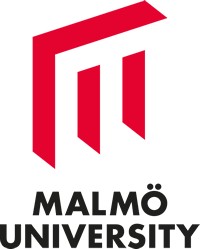Research Project
The PhD will be enrolled at the Division of Physical Chemistry at Lund University due to a change of affiliation of the supervisor Felix Roosen-Runge. The project is part of a graduate school at the world-class synchrotron MAX IV in Lund, which focuses on education and application of state-of-the-art synchrotron techniques for a broad range of materials and questions.
The PhD project targets the question of how to best exploit the potential for tunable structure formation from plant proteins. This work is part of a larger research program that aims to translate conceptual and methodological developments in soft matter and protein biophysics into food science.
Proteins from plant seeds present promising opportunities to replace animal-derived food proteins with a more sustainable, healthy and affordable protein source. However, seed proteins are structurally complex, of large molecular weights, and often poorly soluble in water. These differences to typical animal proteins require novel approaches to create comparable food properties.
The PhD project will focus on different assembly pathways of proteins as triggered by changes in temperature and chemical environment. Specific tasks will include the use of time-resolved scattering and microscopy techniques to follow the structural and dynamical evolution during assembly processes, as well as the use of environments for controlled mixing to initiate structure formation with specific desired outcomes.
Research Group and Environment
The project will provide opportunities to improve experience and expertise with a broad range of characterization techniques relevant for soft and biological matter, and protein science. The division of Physical Chemistry offers a well-equipped shared laboratory with a broad range of modern characterization techniques, including small-angle X-ray and light scattering instruments, rheology, calorimetry, AFM, NMR, optical spectroscopy, and optical microscopy.
The research group has a deep expertise and a strong track record with large-scale facility research at synchrotron and neutron facilities, such as MAX IV and ESS in Lund as well as ILL and ESRF in Grenoble. The PhD candidate will have the opportunity to experience these unique and world-leading scientific environments during experimental campaigns, and strengthen general soft skills by co-managing these team-based experimental campaigns and writing competitive proposals for measurement time. The research project also offers the opportunity to develop expertise in data analysis and scientific computing as a key academic skill in the era of big data sets.
The work will be performed in a team of PhD and project students, postdocs and the supervisors. We aim for an interactive and team-based research program, in which each member is encouraged to actively contribute with ideas and competence to a common scientific progress. The PhD student will have the opportunity to participate in national and international workshops, summer schools and conferences - not only to present and disseminate the research, but also to strengthen the personal network with other researchers and collaborators.
We aim for the PhD student to become an active and independent researcher at the interdisciplinary boundary of food science and soft matter.
Requirements
The project builds on an interdisciplinary approach aiming at a conceptual understanding of structure formation of food proteins from plants. The candidate needs to be motivated to combine concepts and approaches from food science and soft matter science, and bridge experiments to theoretical understanding. The ideal candidate combines a strong interest in interdisciplinary research with a solid background in a related field of study (e.g. physics, (bio-)chemistry, food engineering).
Good communication skills in English (written and spoken) as working language are necessary. Furthermore, a successful candidate should be open and able to actively contribute to an interdisciplinary and international research environment.
Experience in research related to proteins in solution or protein hydrogels is a merit, as well as conceptual knowledge on the physicochemical and biophysical basis of protein phase behavior. Hands-on experience in one or several of the following techniques/topics is a merit:
- light, neutron or X-ray scattering
- data analysis of larger data sets
- scientific scripting (e.g. python, matlab)
- microfluidic environments
- protein purification, liquid chromatography
- optical microscopy, in particular feature tracking and differential dynamic microscopy (DDM)
- processing of food proteins
Application
The formal application round closes 30/10/2023 via the application side
https://lu.varbi.com/en/what:job/jobID:656050/type:job/where:4/apply:1

 Continue with Facebook
Continue with Facebook



